Emerging/Emergent Errors; Puerile Pomo Prattle; Abominable Antinomian Aberrations; Novel New-Perspective Nonsense; Crazy Charismaniac Charlatanism; Sanctimonious Sacramentalist Superstitions; Cynical, Condescending Catholicity; Private Prophetic Phantasms; and Seeker-Sensitive Silliness: What Do They All Have in Common?
by Frank Turk & Dan Phillips, but not Phil Johnson—because you people wear him out
 The primary point of this post is to really bring all the people we have had consistent adversarial interaction with out of the woodwork to see if we can't make a comment thread go past the 1,000 mark—because after all, we get thousands of readers every day. Everyone should have something to say for himself.
The primary point of this post is to really bring all the people we have had consistent adversarial interaction with out of the woodwork to see if we can't make a comment thread go past the 1,000 mark—because after all, we get thousands of readers every day. Everyone should have something to say for himself.(There's a possible counter-bonus to being so open about our aims. All our friends among the jolly-raunchers and tongue-waggers and shape-shifters and gutless-gracers might read our goal, and think "Well, I'll be [EC verbiage deleted] if I'm going to oblige those judgmental pinheaded legalistic dead-lettered haters!", and stay away. Net result? We get to whack away to our hearts' content, unopposed. See? Win/win!)
So we're going to write a post determined to engage all of the above categories, and it's going to work like this:
 We're going to assume that when we type phrases like "inerrant scripture," "personal sanctification," "indwelling of the Holy Spirit," and "regenerate believers," they will be blithely ignored or recklessly misconstrued, and will instantly cause someone in one of the adversarial camps to post a comment which has nothing to do with the point we were making.
We're going to assume that when we type phrases like "inerrant scripture," "personal sanctification," "indwelling of the Holy Spirit," and "regenerate believers," they will be blithely ignored or recklessly misconstrued, and will instantly cause someone in one of the adversarial camps to post a comment which has nothing to do with the point we were making.
- We're going to take it for granted that all of these groups are actually engaged in more important things—you know: like ministry, or real, high-flown academics—than blogging.
- We're going to have a calm assurance that, no matter what we say, Steve Camp will find a way to disagree and show us how much better his Kung Fu is than ours.
- We're going to gratuitously post graphics like this one:

And this one:
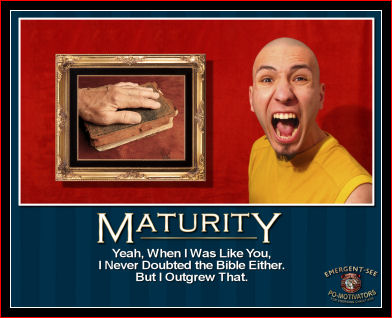 Inspired by remarks left in the combox below |

And this one:
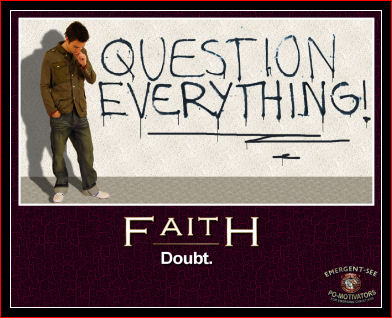
And this one:
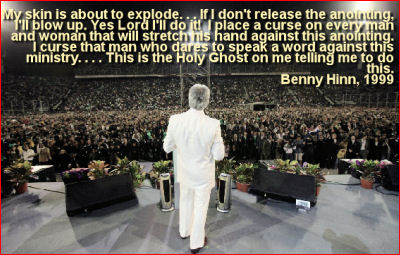
And this one:

And this one:

And this one:

But not this one:

And the reason for all of that is this—after our concurrent 3-ish years of blogging, we have come to realize that blogging cannot be serious business. Investing a lot of time in posts which say things like God's provision is usually exactly what we need, or that the sufficiency of God's word far exceeds any experience we could hope to encounter, or that we often discount what God has already done never seems to work out for us. People don't remember them. They're not what people come here to see.
And that, frankly, is a shame.
So no sense in wrecking the rest of our week with prayer, reflection and the real meat of God's word. This is what the people want—verbal meat-chubbery—and frankly, from what we understand, giving people what they really want is called missional these days.
We're down with that, because we've listened, heard, read, dialogued, and it keeps coming down to the same thing: the Bible. It seems to be such a problem for so many of our critics.
 If you take the Word at its word, it is God's Word. Because it is God's Word, it is truth (John 17:17), it is inerrant (John 10:35), it is sufficient for every Christian need (2 Timothy 3:15-17). Are you a real disciple ofJesus? The way you treat the Bible tells the tale (John 8:31-32). It is the end result of a long, deliberate process (Hebrews 1:1-2), done through men moved by the Holy Spirit who wrote out God's self-revelation, rather than products of their own will (2 Peter 1:20-21).
If you take the Word at its word, it is God's Word. Because it is God's Word, it is truth (John 17:17), it is inerrant (John 10:35), it is sufficient for every Christian need (2 Timothy 3:15-17). Are you a real disciple ofJesus? The way you treat the Bible tells the tale (John 8:31-32). It is the end result of a long, deliberate process (Hebrews 1:1-2), done through men moved by the Holy Spirit who wrote out God's self-revelation, rather than products of their own will (2 Peter 1:20-21).And it's markedly complete. No essential God-breathed book has been found that antedates Genesis, nor any that post-dates Revelation. The whole vital, need-to-know story and all the details are there: God, man, the universe, the meaning of life and everything. How it all started, how it all ends, what we're to be believing and doing (and not believing nor doing) in the meanwhile.
And there's so much of it. Sixty-six books chock-full of revelation. So much that most professing Christians (to our shame) have never even read it all.
In the light of that, what explains a movement that in effect trivializes it all? A movement that's fascinated with low-voltage pale imitations, so much so that they will redefine Scripture itself to accommodate them? Why (on their view) did God make this perfect thing, then go mostly silent for long centuries, then recently start muttering and stammering and stuttering? It's like they think God is a one-hit wonder, who made one really great album, and then kept making a succession of tired, hackneyed thrift-shop nothing-bombs.
If these mutterings and burblings are actually meaningful, why did God bother to write the Book in the first place?
 Or what of another movement that basically has to stare emptily at so much of the Bible? A movement that makes every imperative into a suggestion, treats the commandments of Christ and the apostles as more what you'd call "guidelines" than actual rules? That turns every vivid and hard warning into a Nerf-bat? That makes the road to Glory wide and easy, but the road to Hell narrow and hard?
Or what of another movement that basically has to stare emptily at so much of the Bible? A movement that makes every imperative into a suggestion, treats the commandments of Christ and the apostles as more what you'd call "guidelines" than actual rules? That turns every vivid and hard warning into a Nerf-bat? That makes the road to Glory wide and easy, but the road to Hell narrow and hard?If these commandments, warnings, and conditions are actually meaningless, why did God bother to write the Book?
Or what of yet another movement, a vowel/consonant movement, that reduces the clarion calls,
 the proclamations, the crystal-clear, black-and-white razor-edged demands of God to a "conversation"? A movement that sometimes seems to love community over clarity, dialogue over die-to-sin, leaven* over Heaven, good feelings over Good News, crass over Cross, reinvention over regeneration, edginess over edges, and hipness over holiness? A movement that has all the wisdom of a 20-year-old who's decided he's smarter than his elders (or smarter than all the wisdom of the ages) and approaches the issues of life as if no one else ever saw anything plainly before him...
the proclamations, the crystal-clear, black-and-white razor-edged demands of God to a "conversation"? A movement that sometimes seems to love community over clarity, dialogue over die-to-sin, leaven* over Heaven, good feelings over Good News, crass over Cross, reinvention over regeneration, edginess over edges, and hipness over holiness? A movement that has all the wisdom of a 20-year-old who's decided he's smarter than his elders (or smarter than all the wisdom of the ages) and approaches the issues of life as if no one else ever saw anything plainly before him......and (more particularly) as if God never said anything about the issues of life, or even if He did, as if no one has wrestled with His words before?
If none of the lines or limits of truth has been discovered, uncovered, and well-covered over the last twenty centuries, it makes you wonder why God bothered to give that Book as long ago as He did.
And if the most central issue of the Bible—how can man be just before God?—has been misunderstood by basically every one of the holiest, godliest, most consecrated and devoted men of God for centuries; if, that is, our most elder brothers in the faith have, every one of them, answered that question wrongly, and only a specialist engaging in specialized sub-category studies can unearth the true answer to this basic question...
...it makes you wonder not only why God wrote the Book, but why He made such a poor job of it. Why couldn't He manage to get it
And what if we lump together all those bustling, bristling groups that have found (invented) such wonderful ways of packing churches—by substituting arts and crafts, skits and dances, jokes and stories, gimmicks and
 gewgaws, rather than the red-hot, passionate, truth-full, straight-up, eternal-God- talking-to-you-today (Hebrews 3:7-13) preaching of the Word?
gewgaws, rather than the red-hot, passionate, truth-full, straight-up, eternal-God- talking-to-you-today (Hebrews 3:7-13) preaching of the Word?Why, really why, did He bother?
See, we may be really old guys, but we wonder things, too.
Don't you? Shouldn't you, anyway?
*Well, at any rate, yeast.

 wasn't going to bump Dan, but I don't mind bumping Frank. I had this item teed up for tomorrow, but the guys are already working on a post for tomorrow whose title alone will prolly launch a thousand comments, and I'm not even going to have time to participate in that thread. So let me get this one up.
wasn't going to bump Dan, but I don't mind bumping Frank. I had this item teed up for tomorrow, but the guys are already working on a post for tomorrow whose title alone will prolly launch a thousand comments, and I'm not even going to have time to participate in that thread. So let me get this one up. (Incidentally, observant readers will notice that I haven't even opened the combox for this post. I know that's not very Schaefferesque of me, but if you have something you desperately need to say, please go to the thread just below this one and take it up with Frank. Or go to the one after that and take it up with Dan. I'm really busy.)
(Incidentally, observant readers will notice that I haven't even opened the combox for this post. I know that's not very Schaefferesque of me, but if you have something you desperately need to say, please go to the thread just below this one and take it up with Frank. Or go to the one after that and take it up with Dan. I'm really busy.)
 But Luke (of "Luke and Rachael" fame in the meta) has said something which I think deserves special attention.
But Luke (of "Luke and Rachael" fame in the meta) has said something which I think deserves special attention. I was going to comment that it's a little weird that pastors who cuss from the pulpit, borrowing music from the least morally-concerned part of secular culture, accepting ritual scarring and piercing, and giving a pass to public drunkenness are all seen as "acceptable", but blogging -- that is, blogging in a way which people will read and take notice of -- is seen as a violation of mission. However, I'm going to ask a question instead.
I was going to comment that it's a little weird that pastors who cuss from the pulpit, borrowing music from the least morally-concerned part of secular culture, accepting ritual scarring and piercing, and giving a pass to public drunkenness are all seen as "acceptable", but blogging -- that is, blogging in a way which people will read and take notice of -- is seen as a violation of mission. However, I'm going to ask a question instead.


 his comes from the discussion attached to one of yesterday's posts. We've all seen the vigor, passion, and persistence with which angry friends of Emergent have been willing to argue and complain about the propriety of
his comes from the discussion attached to one of yesterday's posts. We've all seen the vigor, passion, and persistence with which angry friends of Emergent have been willing to argue and complain about the propriety of 

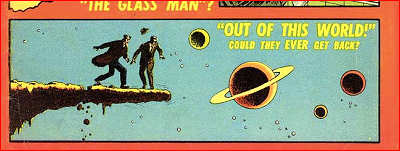
 grammatico-historical. That conviction is
grammatico-historical. That conviction is  See, here's the thing about the use of
See, here's the thing about the use of  Dismissers feel quite sage and urbane, and I'm certain that they feel they've lowered Hell's terror-index appreciably by this dismissal.
Dismissers feel quite sage and urbane, and I'm certain that they feel they've lowered Hell's terror-index appreciably by this dismissal. ere a commenter tries to argue that outsiders' criticism of the Emerging Church Movement is inherently unfair and unwise, because the movement is so broad that no criticism can possibly apply to the whole mess. Furthermore, this person suggests, an ultra-broad movement like this would be self-correcting if we would just allow that process to happen. The conservatives in the movement are trying to straighten out their wayward brethren, and that's why non-emergent critics should simply leave them alone:
ere a commenter tries to argue that outsiders' criticism of the Emerging Church Movement is inherently unfair and unwise, because the movement is so broad that no criticism can possibly apply to the whole mess. Furthermore, this person suggests, an ultra-broad movement like this would be self-correcting if we would just allow that process to happen. The conservatives in the movement are trying to straighten out their wayward brethren, and that's why non-emergent critics should simply leave them alone: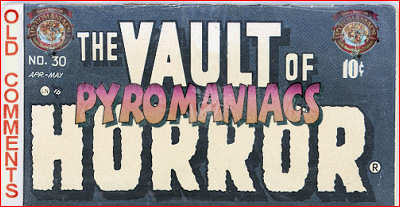

 he Q&A session during
he Q&A session during 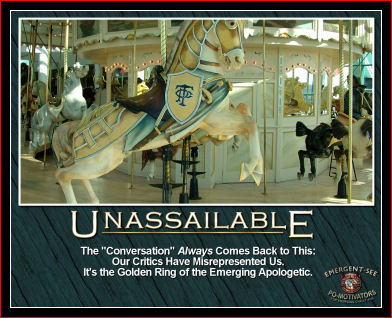

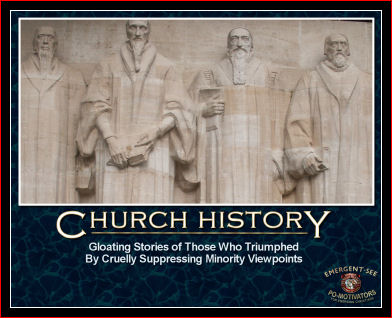

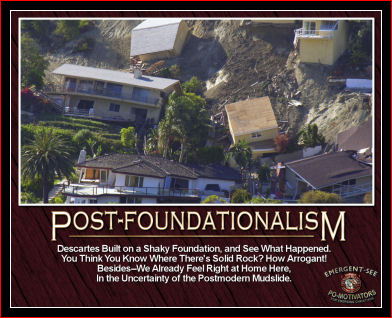





 here used to be a company in the north of Scotland called "The Men." Why, if heresy had been preached before them, they would have been as provoked as
here used to be a company in the north of Scotland called "The Men." Why, if heresy had been preached before them, they would have been as provoked as 









